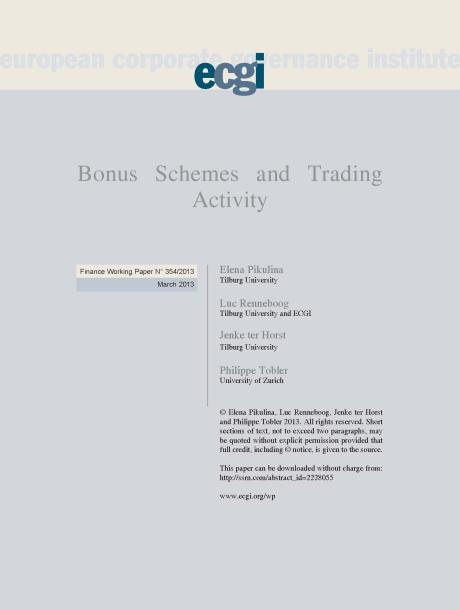
Bonus Schemes and Trading Activity
Abstract
Little is known about how different bonus schemes affect traders' propensity to trade and which bonus schemes improve traders' performance. We study the effects of linear versus threshold (convex) bonus schemes on traders' behavior. Traders purchase and sell shares in an experimental stock market on the basis of fundamental and technical information (evolution of the market index, past share price evolution, realized earnings, and analysts' earnings forecasts). We find that traders trade more intensively (the number of transactions augments) under the threshold than under the linear bonus scheme. When market conditions are such that a higher profitability can be more easily reached, trading frequency only increases little under a threshold scheme, but the size of trades is significantly larger than in the case of market conditions with lower profitability. Furthermore, trading intensity significantly decreases when bonus thresholds are reached but only after building in a safety margin. Under the threshold scheme, the traders' performance is lower (even when there are no transaction costs) than under the linear bonus scheme as a consequence of poorer market timing. This is especially the case when earning money by trading is relatively difficult (under low profitability conditions). Nevertheless, under low profitability conditions, traders seem to collect more information about the relationships between share price and market returns, earnings, and earnings forecasts, apply more effort to understand those relationships, and finally show better performance.









